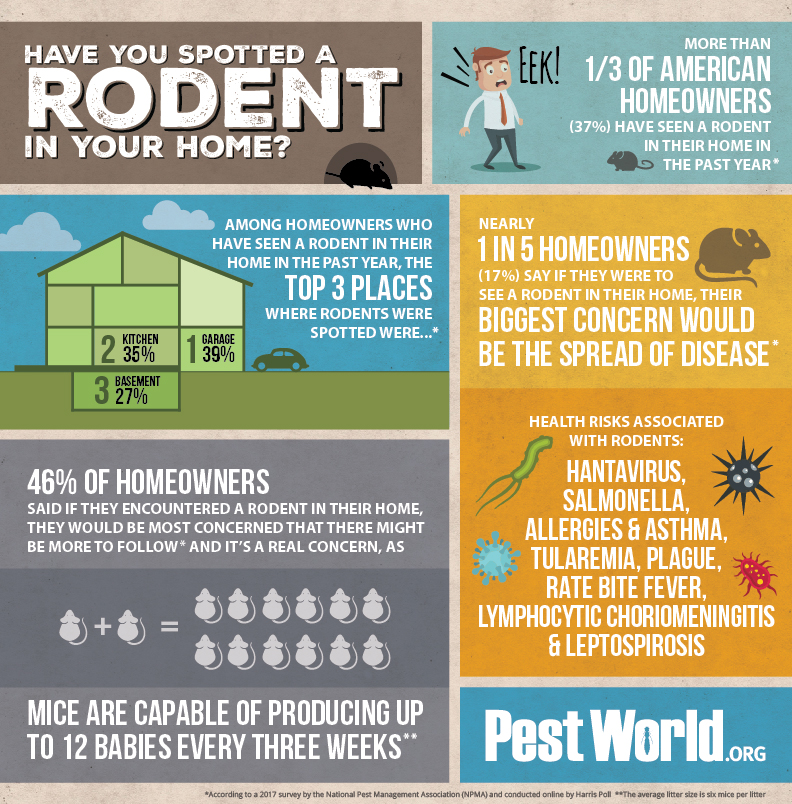Shielding Your Yard From Pests: Methods For A Pest-Free Outdoor Room
Shielding Your Yard From Pests: Methods For A Pest-Free Outdoor Room
Blog Article
Content Author-Thorpe Pittman
Picture your garden as a refuge, an area of tranquility and charm. Nonetheless, the visibility of outdoor parasites can rapidly disrupt this idyllic image. What happens if there were simple yet efficient ways to keep these unwelcome site visitors at bay and safeguard your garden sanctuary? By adhering to a few practical pointers and implementing natural approaches, you can develop an unified outside space where your plants can thrive undisturbed.
Natural Bug Deterrents
To keep insects away from your yard normally, plant aromatic herbs like mint and lavender. These great smelling plants not only include appeal to your garden yet likewise serve as effective insect deterrents. Insects like insects, flies, and even some garden-damaging bugs are warded off by the solid scents produced by these herbs. Simply positioning them tactically around your yard can assist produce a natural obstacle versus undesirable bugs.
In addition to mint and lavender, take into consideration growing various other natural herbs like rosemary, basil, and lemongrass to additionally improve your garden's pest-proofing abilities. https://how-to-remove-rat-urine-s94949.ourcodeblog.com/27218474/common-signs-of-termites-in-your-home-a-comprehensive-overview serve as all-natural repellents however also have the added advantage of serving in cooking or crafting home made remedies.
Strategic Plant Positioning
Take into consideration the layout of your garden and the sorts of plants you have to tactically place them for optimum pest-proofing performance.
Start by grouping plants with comparable resistance to parasites together. By doing this, you can produce an all-natural obstacle that discourages insects from spreading out throughout your garden.
Additionally, positioning pest-repelling plants like marigolds, lavender, or mint near more at risk plants can help shield them. High plants, such as sunflowers or corn, can work as a guard for much shorter plants versus insects like rabbits or ground-dwelling insects.
Keep in mind to leave sufficient space in between plants to improve air flow and minimize the danger of illness that pests might carry.
Furthermore, consider growing strong-smelling natural herbs like rosemary or basil near vulnerable plants to puzzle insects' detects and make it harder for them to find their targets.
Effective Insect Control Techniques
For combating garden parasites efficiently, applying a multi-faceted pest control strategy is essential. Start by motivating natural killers like birds, ladybugs, and praying mantises to help maintain bug populations in check. Presenting plants that bring in these useful pests can help in pest control. In addition, exercising excellent yard health by eliminating debris and weeds where bugs could conceal can make your garden much less congenial to unwanted site visitors.
Take into consideration making use of physical barriers such as row cover textiles or netting to secure vulnerable plants from parasites like caterpillars and birds. Applying natural pesticides like neem oil or insecticidal soap can also work versus particular bugs while being much less unsafe to valuable bugs and the atmosphere. It's critical to revolve your crops each period to prevent the buildup of pest populations that target certain plants.
On pest control companies in my area inspect your plants for indications of bug damage so you can take action without delay. By combining these methods and remaining watchful, you can effectively control yard parasites and enjoy a flourishing, pest-free yard.
Conclusion
So, there you have it - with the best approaches, you can maintain pesky outdoor insects far from your yard and help your plants flourish.
Did you know that growing mint has been revealed to fend off insects and other bugs, minimizing the demand for unsafe pesticides by approximately 60%?
By integrating natural deterrents and smart planting strategies, you can create a lovely and pest-resistant garden sanctuary for you to delight in.
